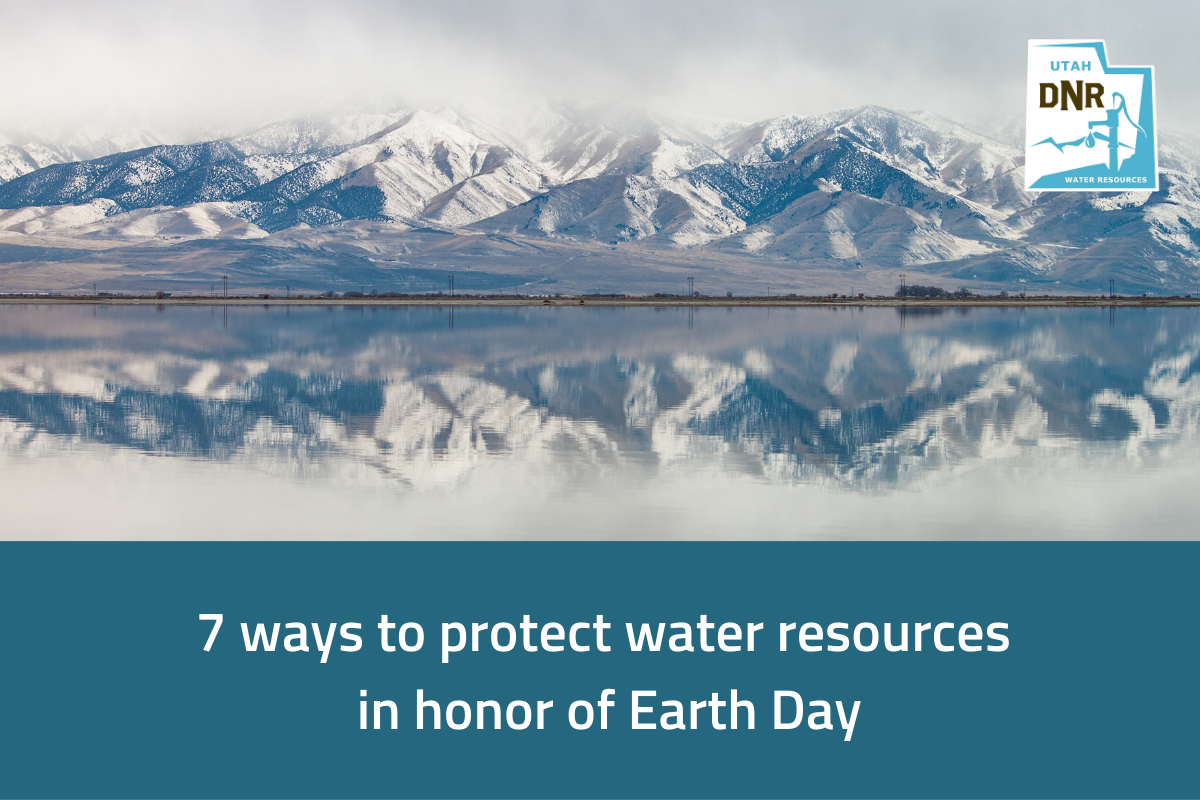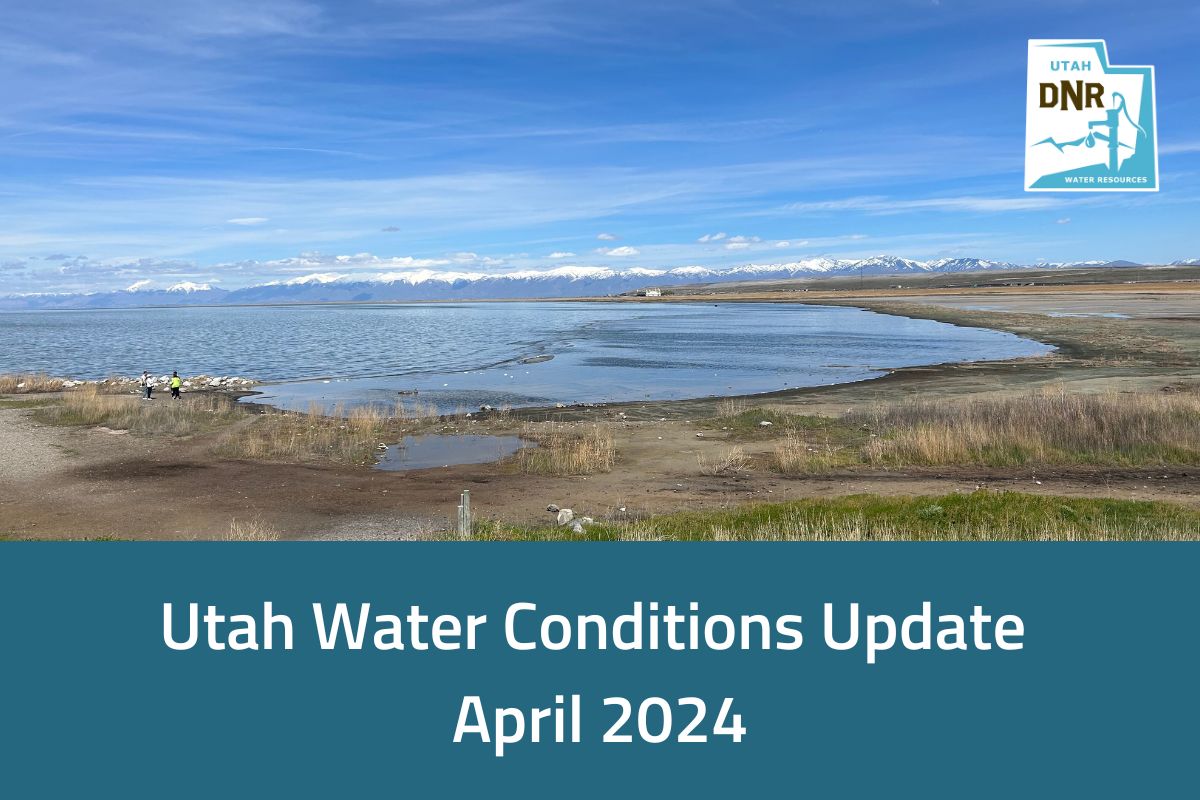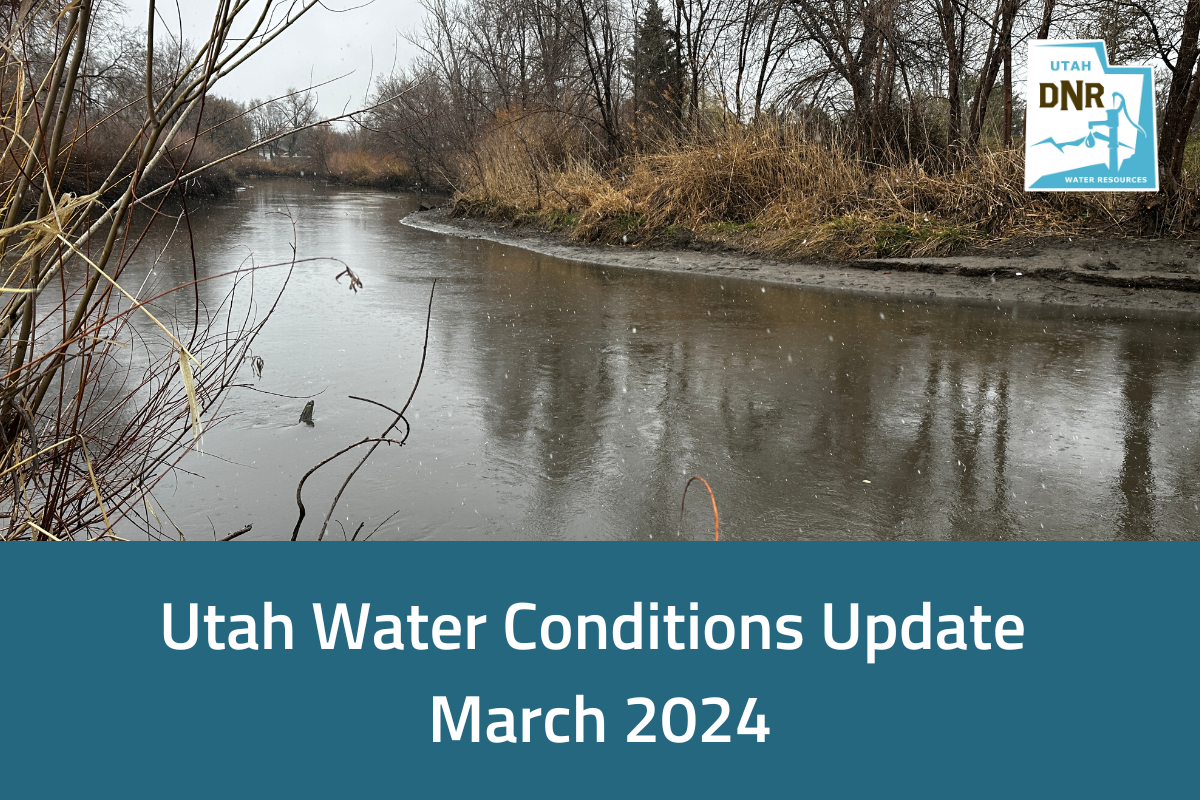April 22, 2023 — Earth is a watery place. When we look at a photo from space, it’s easy to see that our planet has more water than land. But of all the water on Earth, more than 99-percent of it is unusable by humans and many other living things. It’s surprising that the water that supports all terrestrial and aquatic life on our planet is actually so scarce!
Here in semi-arid Utah, we’re especially vulnerable to water issues, which is why spreading word about how we can work together to protect the resource is critical. Our division is working hard to address many of the state’s water challenges through conservation, development and planning efforts, but we need your help. In honor of Earth Day, we’re sharing seven simple ways you can be a water steward and help ensure a healthy and secure water supply here in Utah now, and into the future:
- Stop litter from polluting waterways
Join a community clean up to stop litter from entering Utah’s waterways! There are several organizations that lead clean-up efforts, including Salt Lake Public Lands and Utah State Parks and they’re often in search of dedicated volunteers. It’s also important to keep in mind that the most effective way to prevent trash from polluting our waterways is to reduce the amount of waste you create. - Help keep storm drains clear
Especially in times of plentiful snowpack when rivers are running high and fast, it’s important to keep storm drains clear of debris and garbage to alleviate flooding and relieve pressure on water systems so that the water gets to where we need it to go. Public utilities, cities and counties work hard to keep flows moving during spring runoff, but many can often use more help! Check for opportunities within your community. - Use waterwise plants on your property
Landscaping your yard with plants adapted to Utah’s arid climate and cold winters saves water, adds beauty and attracts pollinators! Visit a conservation garden and check out some spring landscape water-saving tips from our division’s Conservation Section. - Visit Utah’s wetlands
Wetlands protect and improve water quality and store floodwaters, not to mention provide food, shelter and water to an estimated 80% of Utah’s wildlife. A visit to some of these unique and sensitive ecosystems helps one become mindful of the valuable role they play in our lives. - Shift toward drought resilience
Farmers, ranchers, residents, businesses and municipalities can all contribute to a more resilient water supply here in Utah by finding new ways to increase water efficiency. Reducing the water footprint will help us stretch our supply, and that’s important now more than ever with Utah’s rapid population growth. Not sure how to start doing your part? Visit Localscapes, Utah Water Savers and Slow The Flow to learn more. - Use and dispose of harmful materials properly
Keep groundwater and nearby surface water clean by properly disposing of harmful materials. Learn more about this from our partners at the Department of Environmental Quality. - Raise water consciousness by sharing the message
Become a steward by helping us spread the good water word. Sharing this article — along with stories about why you care about protecting Utah’s water — will raise water consciousness!




